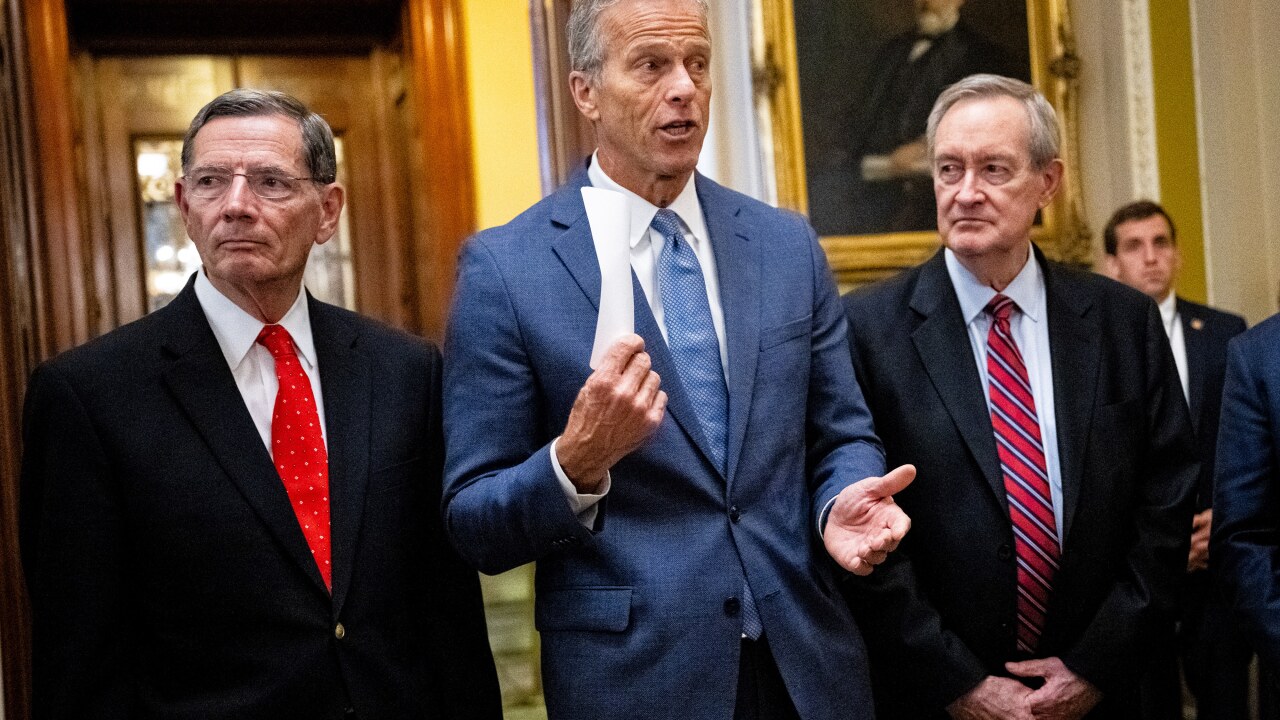-
Citigroup plans to expand its business payments capabilities by joining Syncada, a supply chain processing network owned by Visa and U.S. Bancorp.
March 29 -
Commerce Bank will be the first to sign on with the Syncada open supply chain processing network owned by Visa and U.S. Bancorp.
October 18
Citigroup Inc.'s deal to join Syncada could boost momentum for the receivables processing network, which has announced only one other third-party bank participant.
Given Citi's global presence, its involvement with Syncada should help the network attract other partners, which is crucial to building a robust portal for automating business-to-business payments, observers said.
"Citi frequently creates these groups themselves. The fact that they joined Syncada, as opposed to pulling together other banks or setting up their own, I think makes it a big deal," said Nancy Atkinson, a senior analyst of wholesale banking at Aite Group LLC in Boston. "Having … a bank that has really more of a presence around the world than probably any other certainly helps to validate Syncada's model."
Citi said Tuesday that it is adding the network, operated by a joint venture between Visa Inc. and U.S. Bancorp, to its already wide roster of supply chain management services for large, corporate clients.
Citi will market the service mostly to companies in the transportation sector and expects to begin offering it in the latter half of the second quarter, said Amol Gupte, the North America treasury and trade solutions region head at Citi.
The company was attracted to Syncada because of its strength in processing invoices for the transportation industry and its existing base of 14,000 suppliers that use the service, Gupte said.
The transportation sector is "very fragmented" with "hundreds of thousands of suppliers, which are small to medium companies," Gupte said. "They, in turn, are supplying to large buyers, who are Citibank's clients. When you have supply chains which are so fragmented, it becomes extremely inefficient. When it becomes inefficient, you have delays, you have high costs, you have fraud, you have inefficiency of every sort that creeps in."
Adding Syncada to the mix will help it improve clients' access to working capital and speed up invoice processing, Gupte said.
"I think the global aspect that Citi brings to Syncada is positive," said Dave Wexler, a principal based in New York for the Chicago consulting firm Treasury Strategies Inc.
Citi is only the second bank customer that Syncada has named since Visa and U.S. Bancorp announced the network's formation in July 2009. In October 2010, Commerce Bancshares Inc. of Kansas City, Mo., said its Commerce Bank subsidiary would join the network.
A foreign bank that has yet to be announced has also signed on, and several banks in Asia, Europe, Brazil, Mexico and Canada are evaluating the service, said Kurt Schneiber, the chief executive of Syncada, of Minneapolis.
"If I were to identify an organization with the characteristics that would be tremendously complementary to Syncada, Citi would be one of those," Schneiber said in an interview. "They are focused on large corporates, they have strong relationships that are often global, they have the practice of developing new products … in one geography and then they take those best practices and move them to a new location."
Citi specifically will be offering access to Syncada through its Global Transaction Services business, which already provides treasury management and supply chain financing services to corporations, Gupte said.
Syncada is based on U.S. Bancorp's earlier PowerTrack invoice processing system, which the bank marketed mostly to the transportation and logistics industries. The system went live in 1998, with the Department of Defense as its first client.
The purpose of Syncada is to help banks get closer to performing straight-through processing of payments and invoices for business clients, which often still involve large amounts of paper.
Philip Philliou, a partner with the payments consulting firm Philliou Selwanes Partners LLC in New York, said the addition of Citi was a huge win for Visa, which faced skepticism about its ability to compete in the business payments space with a bank as a partner.
"A lot of people doubted that it would be successful," Philliou said, adding that people questioned whether other banks would "want to … get involved in a joint venture that's partly owned by Visa and U.S. Bank."
Atkinson said that while Commerce Bank and Citi are a positive start, if the network is to expand in a meaningful way it needs more banks. But Schneiber said Syncada is not under pressure to get new banks to sign up left and right.
"I want 15, 20 banks over the next five years who are fully engaged and vested in using Syncada as one of their key treasury management or transaction banking services," Schneiber said.





